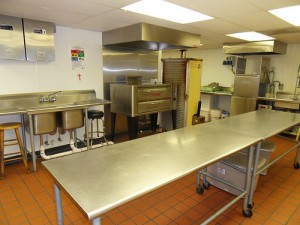 Whew, I get asked that a lot, and I suppose I may appear clueless when I answer my standard “it depends”. Don’t you hate when you hear that? I know I do, but unfortunately, it is the truth. It is not a set in stone figure. Oh, if you are wanting to purchase a food truck you can go to a vendor and ask the price of a food truck furnished with the things you need and bam, there you go. You have some pretty accurate numbers when you are doing your due diligence.
Whew, I get asked that a lot, and I suppose I may appear clueless when I answer my standard “it depends”. Don’t you hate when you hear that? I know I do, but unfortunately, it is the truth. It is not a set in stone figure. Oh, if you are wanting to purchase a food truck you can go to a vendor and ask the price of a food truck furnished with the things you need and bam, there you go. You have some pretty accurate numbers when you are doing your due diligence.
Do Your Home-work
Now I am not saying you can’t also arrive at that number when you are wanting to have a commercial kitchen, it is just a  lot more digging. For instance, if you are wanting to move into a rental commercial space, there is a term “lease hold improvements”. The word improvements sounds innocent enough, but I am here to tell you it is one of those words that can cost big bucks. The worst part is usually the renter pays them and if you leave, you don’t take any of those benefits with you. Yep, you pay to improve someone elses’s property and they get to keep those improvements.
lot more digging. For instance, if you are wanting to move into a rental commercial space, there is a term “lease hold improvements”. The word improvements sounds innocent enough, but I am here to tell you it is one of those words that can cost big bucks. The worst part is usually the renter pays them and if you leave, you don’t take any of those benefits with you. Yep, you pay to improve someone elses’s property and they get to keep those improvements.
I am not talking about equipment that you move in, that is yours, but if you have to do something like attach a hood to a wall, add ventilation or upgrade electricity, that stays. So do things you build in, like counters, flooring, walls etc. It can include things like heating and cooling, plumbing etc. It depends on what your lease says. Always read the small print, small print can represent lots of dollars. Make sure you have your lawyer explain all of it to you.
When you are starting your investigation when wanting to rent, there are things you want to know for sure. Who is going to pay for the lease hold improvements? What is the term of the lease?( I recommend shorter in the beginning, you don’t want to be locked into a long lease if the location is not ideal or worst case the business doesn’t work out. You have to pay that rent anyway, or you may have an expensive buy out.)
Some other things you need to ask are:
- do you have required open hours
- what signage is required – who pays for it
- what parking is assigned to your business
- who maintains sidewalks and parking lot
- who shovels and plows
- do you have independent utility boxes
- does it have utility and phone access
- does the building have a security system – who pays for it
- what is the buy out of a lease
I am talking about a commercial kitchen here, not an in-home kitchen obviously. The thing is, before you get to put the first dollar in your pocket, you have to cover all those up front expenses and then the monthly expenses. Make sure that your business is going strong to insure that those costs won’t swamp you and sink your business. It happens a lot, and that is the reason I encourage a lot of you to start small and grow your business operating under Cottage Food Laws. The next step is adding an in-home commercial kitchen for those who live in localities that will allow it. Once you are “rolling in the dough” from the proceeds of your in home kitchen, then you should look at a major expansion like renting or buying a commercial kitchen.











